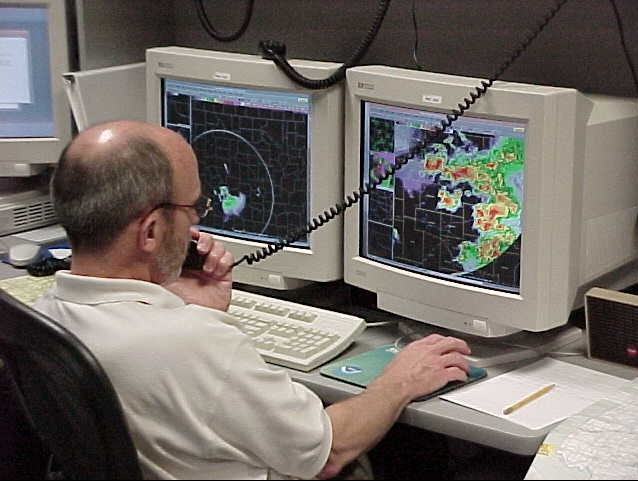|
Buchan Spells
Buchan spells are either cold or warm spells that the 19th century Scottish meteorologist Alexander Buchan claimed happened at roughly the same times each year. Through statistical analysis Statistical inference is the process of using data analysis to infer properties of an underlying distribution of probability.Upton, G., Cook, I. (2008) ''Oxford Dictionary of Statistics'', OUP. . Inferential statistical analysis infers propertie ..., Buchan claimed to have discerned patterns in the Scottish weather that repeated about the same time of the year. He theorized that these were predictable interruptions (either warmer or colder) in the smooth annual transition of temperatures between the seasons. They are now believed by meteorologists to be random events.{{Cite web, url=http://adsabs.harvard.edu/full/1945MNSSA...4...45H, title=Buchans Periods, last=Houghton, first=H. E., date=, website=adsabs.harvard.edu, publisher=Monthly Notes of the Astronomical Society of South Africa ... [...More Info...] [...Related Items...] OR: [Wikipedia] [Google] [Baidu] |
Scottish People
The Scots ( sco, Scots Fowk; gd, Albannaich) are an ethnic group and nation native to Scotland. Historically, they emerged in the early Middle Ages from an amalgamation of two Celtic-speaking peoples, the Picts and Gaels, who founded the Kingdom of Scotland (or '' Alba'') in the 9th century. In the following two centuries, the Celtic-speaking Cumbrians of Strathclyde and the Germanic-speaking Angles of north Northumbria became part of Scotland. In the High Middle Ages, during the 12th-century Davidian Revolution, small numbers of Norman nobles migrated to the Lowlands. In the 13th century, the Norse-Gaels of the Western Isles became part of Scotland, followed by the Norse of the Northern Isles in the 15th century. In modern usage, "Scottish people" or "Scots" refers to anyone whose linguistic, cultural, family ancestral or genetic origins are from Scotland. The Latin word ''Scoti'' originally referred to the Gaels, but came to describe all inhabitants of S ... [...More Info...] [...Related Items...] OR: [Wikipedia] [Google] [Baidu] |
Alexander Buchan (meteorologist)
Alexander Buchan FRS FRSE (11 April 1829, Kinnesswood, Portmoak – 13 May 1907, Edinburgh) was a Scottish meteorologist, oceanographer and botanist and is credited with establishing the weather map as the basis of modern weather forecasting. He also proposed the theory of Buchan Spells. Life Buchan was born in Kinnesswood on the north side of Loch Leven, the son of Alexander Buchan, a weaver, and Margaret Day Hill. He was educated at the Free Church College in Edinburgh and at Edinburgh University. He was Secretary of the Scottish Meteorological Society for 47 years. From 1860 until his death he was the editor of the ''Journal of the Scottish Meteorological Society'' and he was also a member of the Council of the Meteorological Office as well as the curator of the library of the Royal Society of Edinburgh. He was instrumental in establishing the Ben Nevis observatory. Buchan prepared meteorological and oceanographic reports for the Challenger Expedition. In 1870 he was el ... [...More Info...] [...Related Items...] OR: [Wikipedia] [Google] [Baidu] |
Statistical Analysis
Statistical inference is the process of using data analysis to infer properties of an underlying distribution of probability.Upton, G., Cook, I. (2008) ''Oxford Dictionary of Statistics'', OUP. . Inferential statistical analysis infers properties of a population, for example by testing hypotheses and deriving estimates. It is assumed that the observed data set is sampled from a larger population. Inferential statistics can be contrasted with descriptive statistics. Descriptive statistics is solely concerned with properties of the observed data, and it does not rest on the assumption that the data come from a larger population. In machine learning, the term ''inference'' is sometimes used instead to mean "make a prediction, by evaluating an already trained model"; in this context inferring properties of the model is referred to as ''training'' or ''learning'' (rather than ''inference''), and using a model for prediction is referred to as ''inference'' (instead of ''prediction'' ... [...More Info...] [...Related Items...] OR: [Wikipedia] [Google] [Baidu] |
Meteorologist
A meteorologist is a scientist who studies and works in the field of meteorology aiming to understand or predict Earth's atmospheric phenomena including the weather. Those who study meteorological phenomena are meteorologists in research, while those using mathematical models and knowledge to prepare daily weather forecasts are called ''weather forecasters'' or ''operational meteorologists''. Meteorologists work in government agencies, private consulting and research services, industrial enterprises, utilities, radio and television stations, and in education. They are not to be confused with weather presenters, who present the weather forecast in the media and range in training from journalists having just minimal training in meteorology to full fledged meteorologists. Description Meteorologists study the Earth's atmosphere and its interactions with the Earth's surface, the oceans and the biosphere. Their knowledge of applied mathematics and physics allows them to understand t ... [...More Info...] [...Related Items...] OR: [Wikipedia] [Google] [Baidu] |


